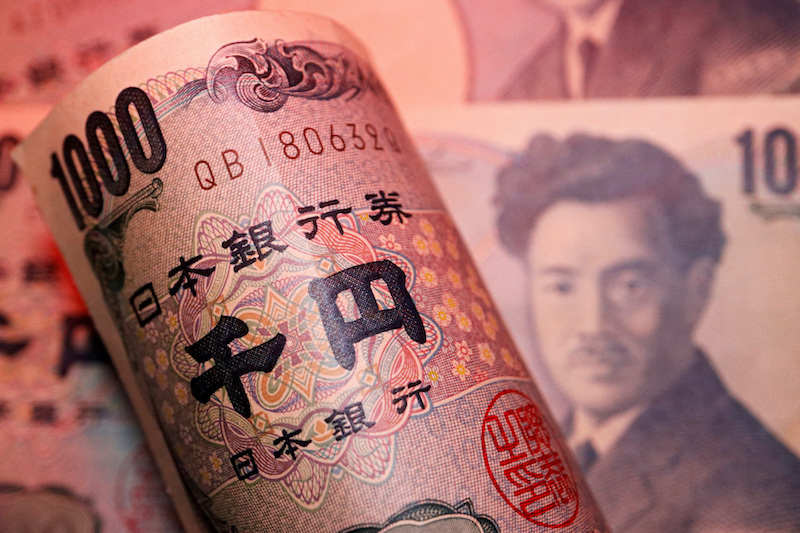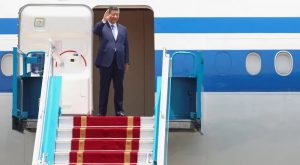The Nikkei share average in Japan saw its biggest rise in three weeks on Wednesday, with relieved investors snapping up stocks after the central bank refrained from major policy changes the previous day.
Toyota Motor, the world’s biggest carmaker, saw a 4.7% gain after revealing strong earnings and a 100-billion-yen ($661 million buyback in the afternoon.
The Nikkei finished up 2.4% at the day’s high of 31,601.65, a two-week closing peak, for its biggest percentage gain since October 10. The broader Topix advanced 2.5%.
“Investors who braced for a hawkish shift in the BOJ’s policy were relieved and bought back stocks to cover their short positions,” said Shigetoshi Kamada, general manager of the research department at Tachibana Securities.
“The BOJ said it would patiently maintain its ultra-loose policy, which is a sharp contrast to the US Federal Reserve, which tries to contain inflation with monetary tightening.”
ALSO SEE: Toyota to Pump $8 Billion More Into US EV Battery Factory
Blunt warning pauses yen slide
The Japanese yen – which dropped 1.7% on Tuesday – stabilized on Wednesday after a blunt warning from the country’s top currency diplomat Masato Kanda.
The currency’s slide paused after renewed threats of intervention, while investors began to look toward a Federal Reserve meeting later in the day, where US rates are expected to remain on hold.
Having dropped to a one-year low of 151.74 per dollar on Tuesday, the yen held at 151.32 in Asia trade, following more pointed-than-normal remarks from Kanda.
“Speculative trading seems to be the biggest factor behind recent currency moves,” Kanda told reporters in Tokyo, adding authorities were “on standby” to respond.
The Bank of Japan raised inflation forecasts on Tuesday, but not policy rates. It redefined its 1% limit on 10-year government bond yields as a reference rate, rather than a hard cap.
Yen down 13% this year
In the forex market, that tweak to policy wasn’t regarded as enough to close the wide interest rate gaps between Japan and other countries that has been responsible for the yen’s 13% decline this year.
“Let’s not forget that BOJ is normalising policy from ridiculously low levels,” Claudio Irigoyen, global head of economics at Bank of America Global Research, said.
“It’s still the case that interest rate differentials are widening significantly in favour of the US. So the normalisation … is relatively fast for BOJ standards, but relatively slow relative to what we are seeing in the rest of the world.”
Deutsche Bank macro strategist Alan Ruskin said the slide in the yen, despite the BOJ tweak, shows it’s more evident than ever that a turnaround in the dollar/yen rate is likely to be driven by the dollar and the state of the US economy.
Yen passed 160 per euro for first time
It has also traded weaker than 160 per euro for the first time since 2008 on Tuesday, before recovering a little to 159.92 on Wednesday.
Other currency moves were mostly modest, though the New Zealand dollar slipped 0.3% to $0.5808 and was nearing a one-year low as softer-than-forecast employment data cemented expectations of an end to interest rate hikes.
Sterling slipped to $1.2125 and the euro – hurt by Tuesday’s slightly disappointing European growth figures – fell 0.1% to $1.0567.
“The data show the (European Central Bank’s) 450 basis points of interest rate hikes … are working to restrict demand,” CBA analyst Carol Kong said. “We estimate the Eurozone economy is now in recession.”
Factory activity indicators in China, Japan and South Korea showed activity shrinking, which dragged on trade-exposed currencies.
The Australian dollar slipped 0.1% to $0.6630. China’s yuan dipped marginally to 7.3190 per dollar.
A liquidity crunch in money markets pushed interbank rates for non-banks as high as 50% on Wednesday and 6% on Tuesday.
The US dollar index inched higher to 106.75.
The Federal Reserve is expected to keep US interest rates on hold, though the release of Treasury refunding details may move the bond market.
- Reuters with additional editing by Jim Pollard
NOTE: This report was amended to include the jump in the Nikkei in the headline and text on November 1, 2023.
ALSO SEE:
China Removes Top Bloggers’ Anonymity, Sparking Privacy Fears
Factory Activity in China Falls in October, Undermining Recovery
Top Memory Chipmaker Gets $2 Billion From China’s ‘Big Fund’
Vietnam in Talks on First Chip Plant, Despite Warning on Costs
Biden to Order ‘Wide Action’ to Limit Risks of Rogue AI Use
























